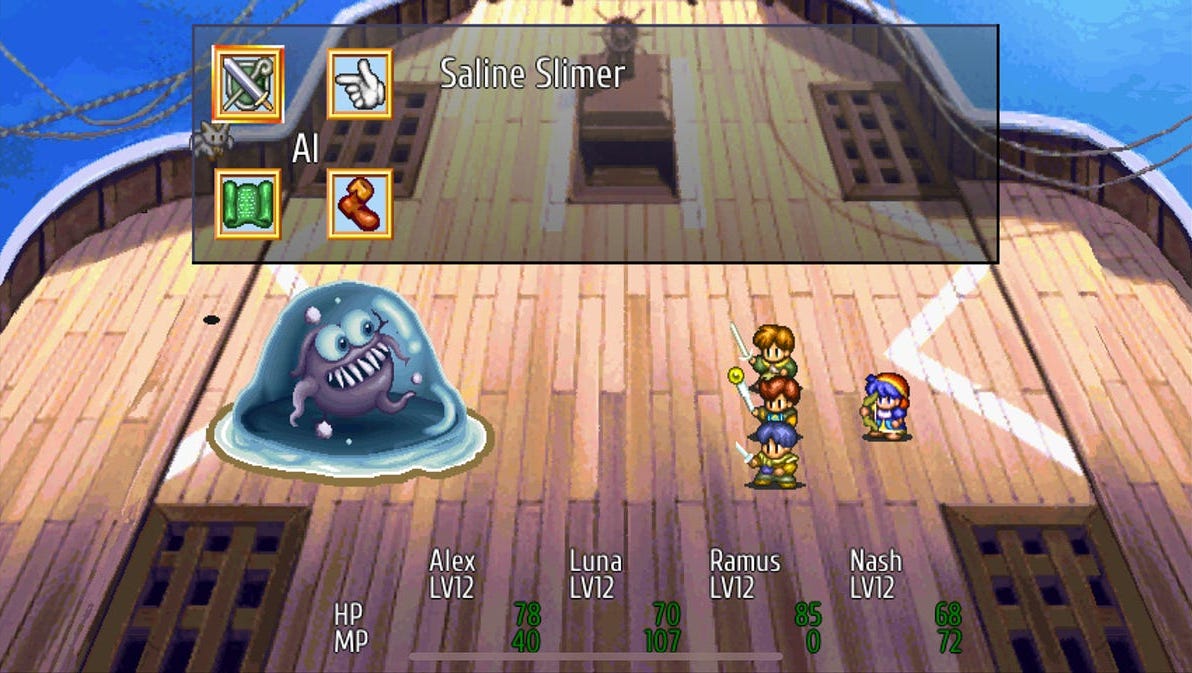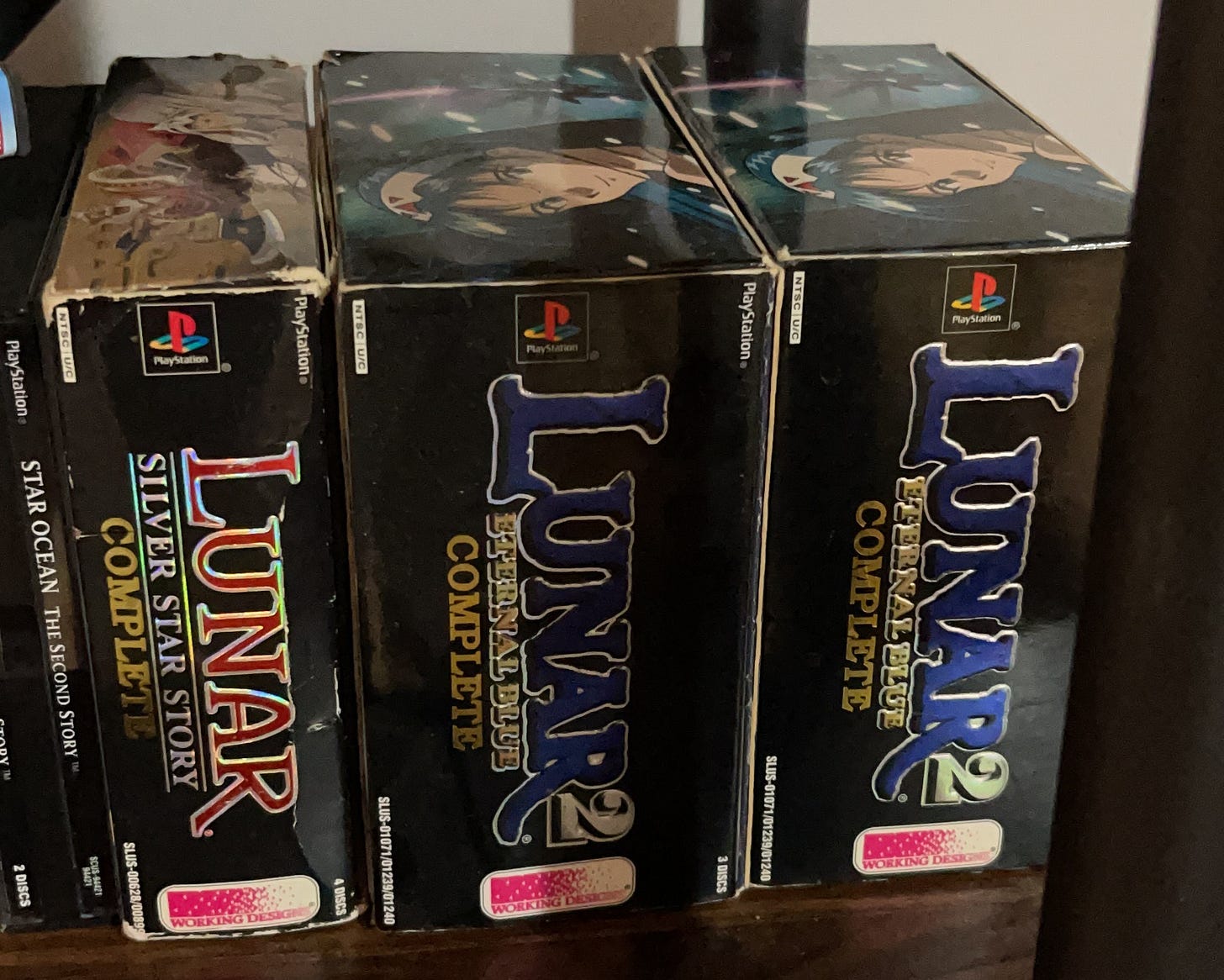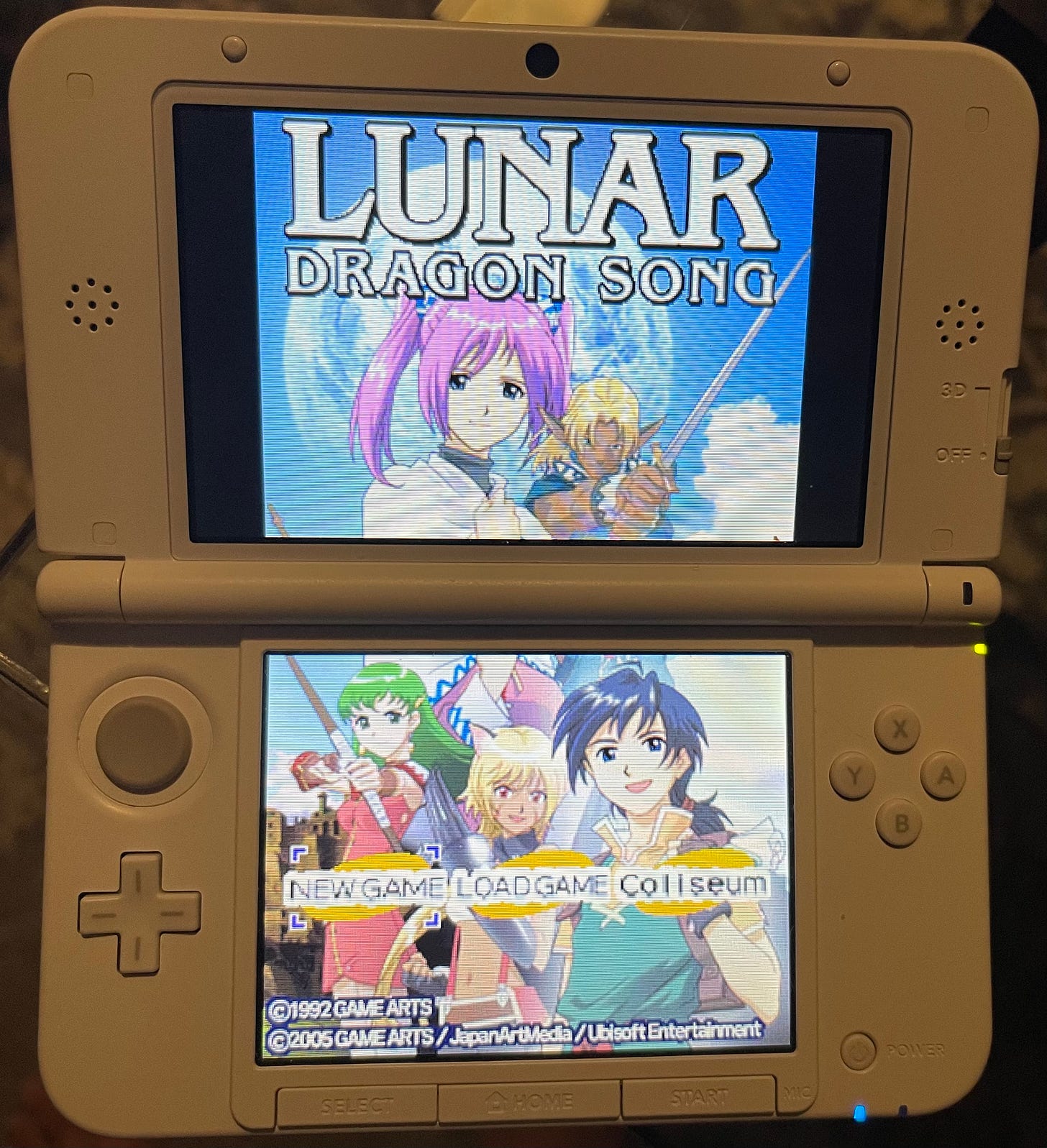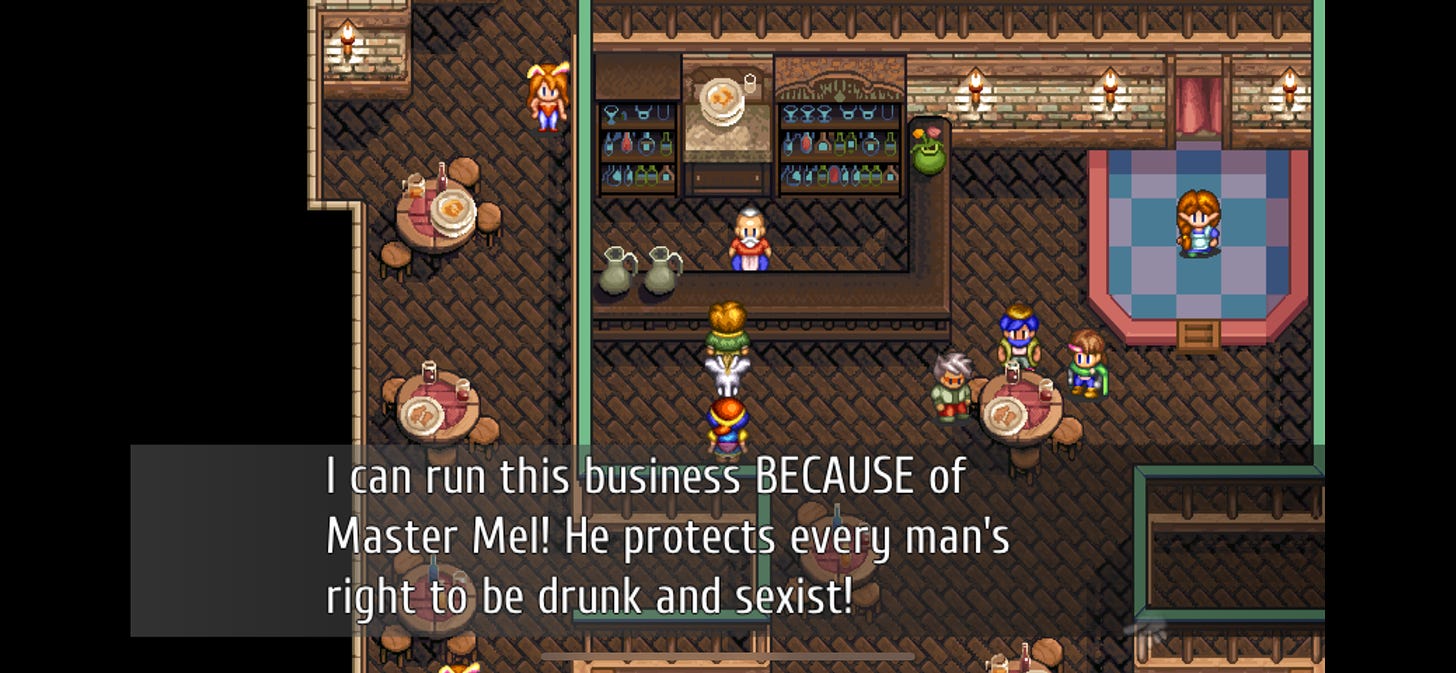Lost in Translation
An HD collection of Lunar Silver Star Story and Eternal Blue would be delightful - so long as we can scrap the Bill Clinton jokes.
If there’s one bit of discourse in modern gaming that I just can’t get into, it’s obsessing over the localization process. For some, there’s seemingly always some minutiae to fret over, typically overshadowing the existence of the game itself. After all, how can one enjoy Unicorn Overlord when the game’s script is not a direct translation from Japanese to English? Likewise, any immersion into Final Fantasy VII Rebirth was shattered upon realizing an outfit Tifa wears in a flashback added another layer of clothing. A quick search of forums reveals myriad complaints about “censorship” of games whenever a developer and/or publisher tweaks a script or facet of the presentation. Could there be anything more catastrophic than a company tailoring a product for an intended audience?
Maybe it’s a generational thing. If, like me, troubleshooting your first console included blowing into an NES cartridge, you might recall other disadvantages of being a Western gamer. Back then, it felt like we happily took what we got - and when we got it, too. I was not penning letters to Ted Woolsey complaining about the choices made when localizing Final Fantasy VI because I was too enthralled by the game itself. It helped that some of my fondest memories of these games were largely due to creative liberties taken during the localization process. It wasn’t the changes that bothered me, it was the waiting for the games to come out.
I recognize the localization process is nuanced, requiring thoughtfulness and respect of the source material. It’s difficult to strike that delicate balance between fidelity and creativity, especially when translating colloquialisms or comedy based on region or culture. Anyone else remember liner notes on a fansub VHS?
Working Designs, the company that localized these titles, was known for injecting pop culture references and jokes in their translations, to various degrees of success. When games like Albert Odyssey and Magic Knight Rayearth were released in the US, they bore the mark of Working Designs, especially in the script. It’s part of the reason why I was so charmed by the localizations of Lunar Silver Star Story Complete and Lunar 2: Eternal Blue Complete for the PlayStation in 1999 and 2000; it’s also why I’m hoping for modern ports of the games that largely do away with references to Ronald Reagan or Tootsie Pops.
Lunar Silver Star Story Complete was the series’ re-introduction in the West, releasing on the PlayStation in May 1999. This game was a port of the Sega Saturn game, itself a remake of the original Lunar Silver Star Story released on the Sega CD in 1992. The game centers on Alex, a young boy who sets on an adventure to become the next Dragonmaster in order to save the world. This version of the game featured gorgeous sprite graphics and cutscenes, a challenging turn-based combat system, and pulse-pounding music. The game is accessible, fun, and came in a gonzo collectors edition with soundtrack, map, hardcover instruction manual, and more.
Lunar 2: Eternal Blue Complete would follow the next year, again a port of a remake. This sequel takes place one thousand years after the first game. This time around, the narrative focuses on Hiro, a young adventurer who meets Lucia, a beautiful woman from another planet who has come to stop an evil being. Boasting the same gorgeous art style, engaging combat, and a connection to the first game, Lunar 2: Eternal Blue impressively builds on the first title’s strong foundation, again including a lovingly created collector’s edition.
While these two releases mark the apex of the series, it would continue with a few additional releases, ports, and remakes. There is the regrettable Lunar: Dragon Song for the Nintendo DS, and yet another remake of Silver Star Story, this time for the PSP. This remake, titled Lunar Silver Star Harmony, sees the game remade from the ground up with new graphics, soundtrack, voice acting, and a new localization. If yet another remake of this game wasn’t confusing enough, there’s also Lunar: Silver Star Story Touch, released for iOS over a decade ago, and on Android earlier in 2024.
This iteration blends the graphical presentation of the PlayStation version and audio of the PSP Remake. The iOS port also includes an impressive number of options in terms of font, graphics, user interface, and more which arguably make it the definitive version of the game thus far. However, there has been no remake or port of Eternal Blue, meaning it has been more or less barricaded on a vintage console for more than two decades.
Which is all the more reason to bring it over to modern platforms in a combination package, similar to HD collections for Grandia and other classic PlayStation-era JRPGs. Nobody is necessarily asking me, but I would prefer the graphical presentation of the PlayStation titles, coupled with options for the classic or newer soundtrack arrangements. Toss in options to increase the speed and other quality of life changes for good measure, and the package would be welcome to gamers revisiting a favorite and palatable to newcomers, too. Many of these tweaks are already present in the mobile version of Silver Star Story.
Working Designs deserves a lot of credit for their efforts during this era. They clearly loved working on these games and the love for the medium comes across so well when playing the games and even when opening up the boxes with maps and other collectibles. I was barely a teenager when Y2K rolled around, and I absolutely ate up the Americanized jokes and lingo back then. Revisiting the series now, the pop witticisms don’t land like they did two-and-a-half decades ago, and some of the edgier jokes are crass or rely on outdated perspectives on groups of people.
I laughed at a Bill Clinton joke in 1999; all that reference does now is remind me to take my blood pressure medication. Likewise, I don’t think a random politician namedrop is going to get the same comical mileage today - or any at all, considering the invective in modern politics. It’s one of the dangers of building so much of the comedy around pop-culture references – and why I suspect there are modded versions of these games flying around the internet that tone down or remove elements of the localization, and other modifications made to the game during its voyage overseas.
It’s amusing to watch people twist themselves in knots decrying censorship over modified character models or other changes made during the localization process. I can imagine the absolute fury on social media if these localizations were coming out today, with someone angrily comparing screenshots of the game in English and Japanese as proof of some elaborate scheme to ruin gaming. Just another example of toxic online discourse that I’m happy to steer clear of.
That’s the difference between what I am looking for in updated ports and the theoretical purists clamoring about censorship. I’m not looking for strict adherence to the source text - I still want that infusion of creativity from the localization team as it enrichens the experience. A well-balanced and sharp localization assists in portraying the characters and their world as fully realized. The Silver Star Harmony localization seems to really hit that sweet spot, excising stale references to American politics, television shows or even Jello while also maintaining the quirkiness that came across with Working Designs’ efforts in the 90’s.
Applying the stronger, modernized localization approach featured in Silver Star Harmony combined with the accessibility and quality of life features from the mobile port would bring gamers an ideal package of two stellar classic JRPGs without bygone cultural references or arguably inappropriate innuendo. A definitive version of two classics from a generation ago on modern consoles with updated translations? If it sounds too good to be true, don’t worry: someone on the internet is going to have a problem with it.







